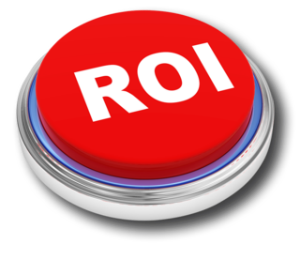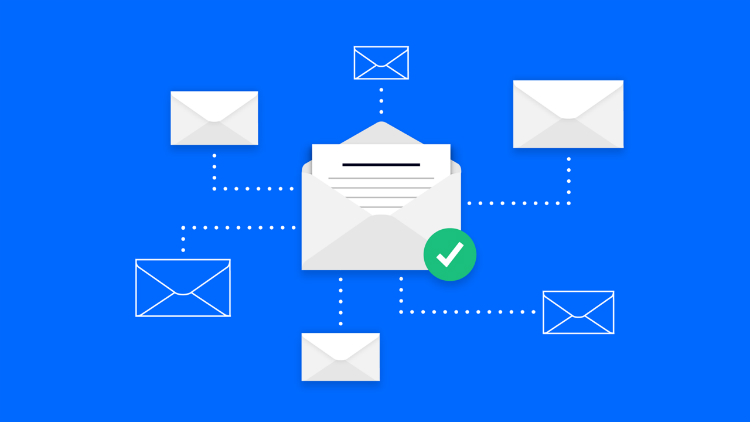So many businesses have turned email into their primary marketing channel. No wonder why: the return on investment is worth the effort. When done right, email marketing has an average ROI of $44 for every $1 spent.

But, not all marketers achieve this kind of success.
Sometimes, the causes are so easy to fix, and that’s what we’re going to talk about today. I’ll share with you some of my best ideas to help you increase email conversions and get the most out of your investment.
Let your content be a magnet
Now, I’m not talking about content offers, although they’re a fantastic way to grow your email list. Rather, I’m referring to the content you send out to your subscribers.
Let’s start by taking a look at your last five emails. Try to answer these questions honestly:
- What percentage of my content was self-promotional?
- How useful was my email?
- On a scale from 1 to 10, how entertaining was it?
- Would I remember this email in a week?
This is an exercise worth repeating every once in a while, as it helps you assess what works in your email marketing and what you could do to improve it.

In the past years, many businesses have switched to inbound marketing as it’s proved to yield better results. As long as your email content is packed with helpful information, your subscribers will come to see you as a powerful voice in your industry. That helps you build trust, which is essential when your goal is to increase conversions.
So, strive to create content that acts like a magnet. Instead of pushing your products and services, pull your subscribers in with helpful, compelling emails. You need a stable foundation before you can consider email a selling platform. That foundation is made of the honest, valuable relationship you manage to have with your subscribers.
How accurate is your email list?
Now that I got you thinking of ways to improve your content, let’s talk about your email list. It’s true that the more subscribers you have, the greater your chances are to increase your email conversions. But when it comes to email lists, quality trumps quantity. You’re better off having a smaller, healthy list than a large one that’s full of risky email addresses.

See, emailing invalid and fake accounts isn’t just a waste of time and money. It also poses a risk to your email deliverability. When your bounce rate is high and your emails hit spam traps and get spam complaints, Internet Service Providers (ISPs) need to take action. What do they do?
- they start delivering your marketing emails to people’s Spam folder
- or, if your email hygiene is really poor, they won’t deliver your emails at all
How can you increase your conversions if you don’t even reach your subscribers in the first place? If you’re tired of hearing crickets after each email campaign, you may want to consider using an email list validation service.
What does it do? It takes your email list from risky to gold mine in a matter of minutes – or hours, if you have a huge amount of contacts. How? By removing all the bad signups that are jeopardizing your deliverability:
- misspelled addresses: an innocent typo in your signup form results in a dead lead. You have to get rid of it right away to protect your bounce rate.
- catch-all emails: some of them may be valid, but others are going to bounce. An email list validation system identifies them in a heartbeat.
- abuse emails: who needs any Spam complaints? Send your emails to people who love hearing from you, not to those who will mark you as Spam.
- temporary emails: while you may be happy that you got another lead, these addresses auto-destroy in a short amount of time. Why let them ruin your bounce rate?
- spam traps: their only mission is to attract and block spammers. Whenever your email hits a spam trap, it increases your risk of being blacklisted.
Email list validation is now a standard in email marketing, as it helps businesses regain and maintain their data integrity. There are many companies online, and they’re pretty affordable. You could try a free email verifier to see how it works before committing to a paid service.
Edit and test your call-to-actions

Every single element of your email content matters. Your subject line makes people want to click and open (ideally). The body of your email offers them useful, captivating information. But your call-to-actions (CTAs) are the ones that “close the deal.” That makes them a key component of your emails, so it’s worth spending some time thinking of the right formulas.
Some marketers swear by the classic “click here” and “buy now.” Others are constantly playing with words, so you’ll see all kinds of creative email CTAs. How should yours sound? Here are a few thoughts to get you started:
- Ask yourself what the voice of your brand is: do you use humor in your communication? Sprinkle some of that in your CTA! Is your brand rather serious? Stay true to your style.
- On the other hand, be open to change: how would your subscribers react if you tried a different approach? There’s no way of knowing other than running a few tests. Don’t be afraid. Experiment.
- A/B testing is key to determining what works best for your audience. When you send your next email, test two versions of your CTA to see which one yields in more conversions.
Another aspect to keep in mind is design. Colors play a big role in marketing psychology, so picking the right one is essential. What color should your CTA button be? It all depends on your branding – use your brand colors or at least, try to stay within the same palette.
A few more tips to help you create the best CTA:
- use action-oriented verbs: get, sign up, listen, read
- include a CTA at the top of your email, as well
- make sure to add a link to your landing page in your copy
- avoid using exclamation points – they’re a thing of the past
Increasing conversions should be easy
Email marketing is a tremendous opportunity for businesses to establish themselves as reliable solutions. As long as you offer quality content and your email list is healthy, increasing conversions should be easy. Be consistent, give people a reason to stick with you, and you’ll reap the benefits in the long run.
About the Author
A former journalist, Corina Leslie is the PR & Marketing Manager for ZeroBounce. She is passionate about communication and helping others email successfully. You can find her on the ZeroBounce blog, where she shares her best tips on digital marketing, copywriting, PR and everything in between.
You can connect with Corina on her LinkedIn profile.


